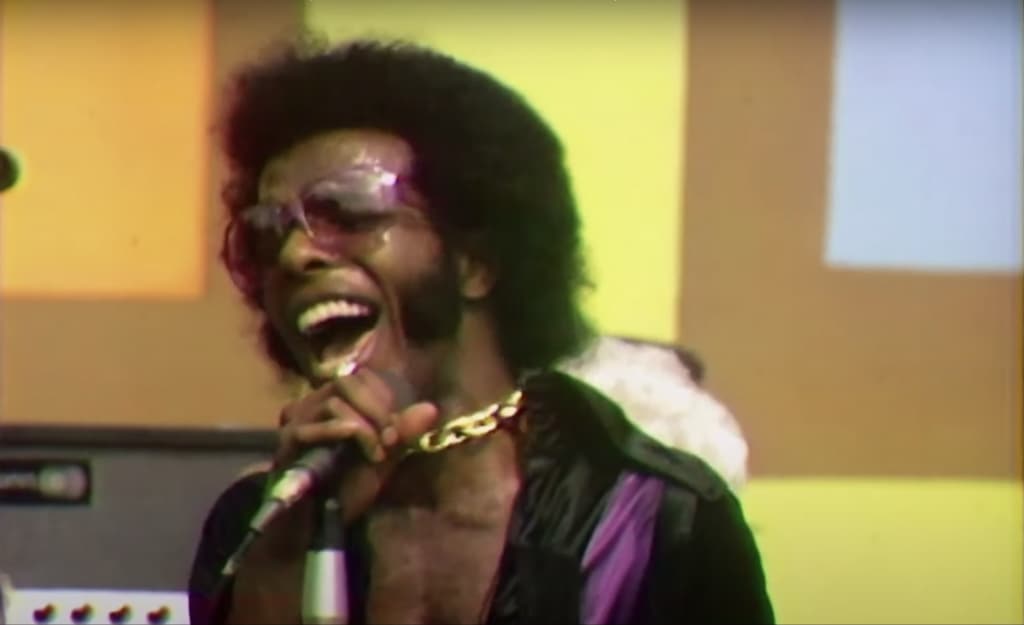Questlove revitalizes vital portion of Black archive with ‘Summer of Soul (…Or, When the Revolution Could Not Be Televised)’
‘It’s more than a concert film,’ the debut director said while introducing the documentary at this year’s Sundance Film Festival
There was hazy, hot and humid weather Black New Yorkers equally detest and enjoy in the summer of 1969, but folks rocking afros and tank tops were happy to stand shoulder to shoulder on the lawn of Mount Morris Park in Harlem for a six-week long Black music festival. All the big names hit the stage—from the Staples Singers and Stevie Wonder to Nina Simone and Sly and the Family Stone—for a mission as vital as ever: to bring music and light to Black people. As invaluable as it seemed at the time, it had all but disappeared from history, until debut director Questlove’s foot-tapping new film, Summer of Soul (…Or, When the Revolution Could Not Be Televised).
“It’s more than a concert film,” Questlove (as Ahmir-Khalib Thompson) said while introducing the documentary at this year’s Sundance Film Festival. That’s true in one sense; the Harlem Cultural Festival, also known as Black Woodstock, took place following a spree of significantly awful events that plagued the Black community. In case audiences have forgotten, Summer of Soul recounts them all in breathless fashion: The Vietnam War, John F. Kennedy’s assassination, Malcolm X’s assassination, Martin Luther King, Jr.’s assassination.
Read More: Questlove and Shaka King discuss the genesis of their new films
That was on top of the persistent despair that comes from being ignored and oppressed in a world that prioritizes, for instance, millions of dollars to send white men to the moon for the first time over Black humanity. “The Harlem Cultural Festival is more important,” an attendee says in the film, in response to the news that Neil Armstrong and Buzz Aldrin took their first steps on the moon. Summer of Soul shows the great lengths founder Tony Lawrence and his crew went to—including paying exorbitant security, travel and other fees for A-list acts—in order to present an uplifting experience by and for Black people when it was sorely needed. To quote a then-young attendee who is interviewed in the film in present day, it was “the summer we were free.”
But the idea that a concert of this magnitude could have this effect on Black people would be true for any era in history. For that matter, Thompson’s interviews with attendees and acts, such as Fifth Dimension, Sheila E. and journalist Charlayne Hunter-Gault, interwoven throughout Summer of Soul, illustrate that the cultural, historical, and public journey of Black and brown people through music are also a bit prosaic. (Though, they are essential for those who are unindoctrinated or haven’t watched Questlove’s delightful YouTube channel where he plays the dual role of deejay and music historian).
Summer of Soul’s actual feat is that it brings attention to the Black archive, which had clearly been denigrated since Harlem Cultural Festival producer Hal Tulchin, who filmed the entire concert series, couldn’t even sell the footage to studios because none of them cared. That’s every performance, head bop from the audience, image of Black Panthers as event security because the NYPD wasn’t interested, and local reporters interviewing guests from Redd Foxx to teenage girls from around the way—evaporated with time. Nearly four years after Tulchin death, and over half a century since the actual festival, Thompson has uncovered all the video recordings, as well as other festival-related documents, from a basement where they had been tossed aside in order to get this movie made.

Any curator could offer you a soliloquy on the impact of the Black archive at any point in history, but especially now when young generations are coming up on a steady diet of YouTube and video games and a glaring lack of Encyclopedia Britannica to help connect them to images from the past. Independent bookstores are closing in spades, and libraries, where microfilm once thrived, are less in vogue than ever. Black people, especially, need and deserve evidence that [insert any momentous event] actually happened and that they were there—and “how beautiful it was,” an attendee recalls through tears Summer of Soul.
Read More: Questlove set to direct doc about the untold story of Harlem’s ‘Black Woodstock’
But Thompson acts as his own music librarian here, presumably dusting off and cracking open boxes of old videos, ingesting all their contents, and presenting what he’s learned to today’s audience as, at its best and should be unapologetically so, a vintage concert film with commentary. The filmmaker’s fervor sometimes outweighs his direction in areas of Summer of Soul that put concert performance over his apparently intended exposition, but the filmed concert is such a loaded sensory and auditory experience that viewers won’t likely care.
As his longtime fans would probably attest, Thompson’s music nerdom and sheer enthusiasm for the story of Black music practically leaps off the screen in Summer of Soul. And the best part is, he makes his audience want to find out more.
Have you subscribed to theGrio’s new podcast “Dear Culture”? Download our newest episodes now!
TheGrio is now on Apple TV, Amazon Fire, and Roku. Download theGrio today!
The post Questlove revitalizes vital portion of Black archive with ‘Summer of Soul (…Or, When the Revolution Could Not Be Televised)’ appeared first on TheGrio.

